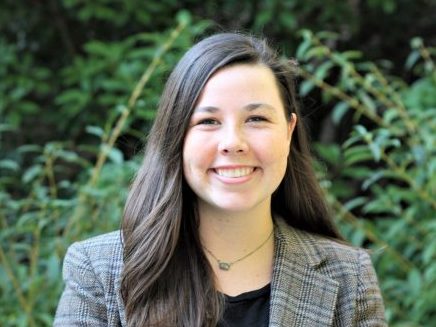The alumna’s Elon College Fellow research was accepted for publication in the journal Midwifery. Crawford is now pursuing a master's in public health with an emphasis on sex education at UNC Greensboro.
Research conducted by a recent Elon alumna in partnership with her mentor and a certified nurse midwife has been published in a peer-reviewed journal.
Alyssa Crawford ’17, an Elon College Fellow who graduated with a bachelor’s degree in public health studies, collaborated with Professor Cynthia Fair, the Watts-Thompson professor and chair of the Department of Public Health Studies, Vicki Latham, a certified nurse midwife based in Greensboro, and alumna Bethany Houpt ’15.

While completing her research during the SURE 2016 program at Elon, Crawford studied the birth experiences of 23 women who had planned a waterbirth. Research questions explored how participants decided to pursue a waterbirth, sources of information accessed, support systems, resistance and their overall birth experiences.
Although all participants used the tub during labor, five did not give birth in the water. Analyses revealed that a belief in their body’s ability to give birth along with the desire for limited medical interventions were the primary reasons for choosing waterbirth. Previous positive and negative experiences with birth also shaped participants’ decision-making processes. The researchers found that women actively sought information about waterbirths from the internet and friends. One-third of participants decided to pursue a waterbirth later in pregnancy and changed provider practices in order to have access to waterbirth.
Midwives and doulas were viewed as critical supporters of participants’ waterbirth decision. Most participants experienced some form of resistance toward their decision from others including family, friends, coworkers, and strangers. The overwhelming majority of participants were positive about their experience and indicated they felt empowered, even if they were unable to give birth in the water, and encouraged other women to consider waterbirth. Most indicated they wanted to have a waterbirth in the future.
The article titled ” ‘After having a waterbirth, I feel like it’s the only way people should deliver babies’: The decision making process of women who plan a waterbirth” was published in Midwifery.
Crawford is currently completing her master’s degree in public health at the University of North Carolina, Greensboro.



